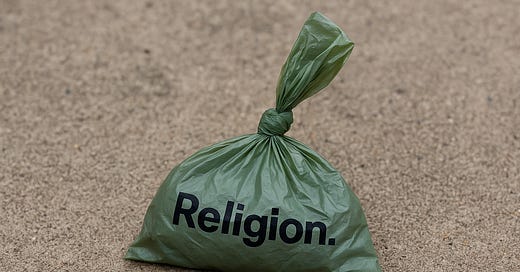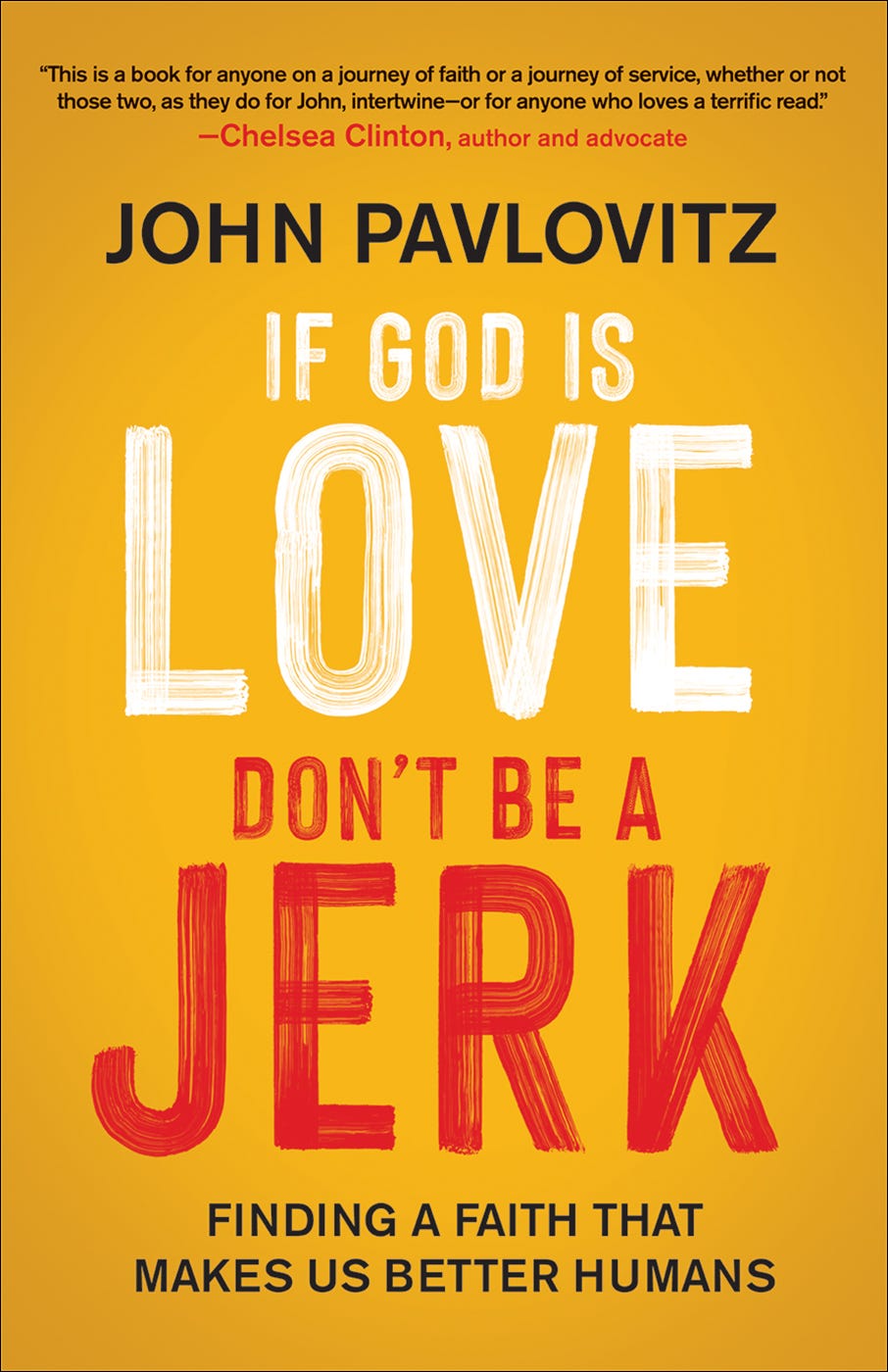Hell hath no fury like religious people getting religion wrong, and what's worse, we usually don't have a clue that we've lost the plot when we have.
There are lots of reasons for our blunders of belief: an insular church culture that naturally resists difference, a rigid theology steeped in fear that tends to mark out a hard line between those who are in and those who are out, or plain old-fashioned ego that insists on being right in matters of faith.
But regardless of the reasons, the bottom line is that it's difficult to detect our blind spots, and this makes it easy for those who claim faith to fail miserably. When we do, our religion can become weaponized, and we can totally jack people up in the name of God and feel fully righteous in the process.
So, if you fancy yourself a religious person and you want to know if you may be getting it wrong, here are a few possible clues:
If you believe that God's pigmentation, gender, sexual orientation, ethnicity, and personality exclusively mirror your own.
If you find yourself invoking God's name to deny other people healthcare, food, safety, marriage, or basic human rights.
If you believe God values your child more than a child across the street, across town, or across the world.
If you believe your religious beliefs should be legislated or compulsory for others.
If your religion requires that others share that religion to have proximity to you.
If you find yourself continually separating people into either the saved or the damned—and you somehow always wind up in the former.
If you believe any politician is anointed by God.
If your God leads you to respond to people with a closed fist more often than an open hand.
If your religion can justify more money for the military than for healthcare.
If the voice you have in your head for God seems to miraculously always align with your preferences and prejudices, if God loves who you love and hates those you hate.
If your religion results in you surrounding yourself with less diversity, not more.
If you believe God specifically blesses your country above any other.
If your religion enables you to revel in the suffering of others, the shedding of blood, the waging of war, or the ending of life.
If you're certain that your religion is the only right one, your holy book is the only right one, and that your interpretation of that book is the only right one.
If your religion sees only men as qualified to lead.
If you feel like God is out to squash you or anyone else.
If you are sure you've gotten religion fully right.
The essence of faith is that none of us has it all figured out, there are always gaps in our understanding, and unless we continually guard against it, we will always default to creating a God in our own image and crafting a religion that makes us comfortable. Relentlessly pursuing a posture of humility in matters of spirituality is the only way to get it right more than we get it wrong.
At the end of the day, it doesn't matter how convinced you are that you've gotten religion right, how certain you are that you're hearing God correctly, or how fervently you believe what you believe. If you claim faith, and your presence here on the planet doesn't leave it more decent, more generous, more compassionate, and more loving than when you got here, then there's a problem. As preacher Billy Sunday once said, "If you have no joy, there's a leak in your Christianity somewhere."
Likewise, if your theology leads you to animosity or hatred or pride or malice or superiority, it's probably not worth holding onto, and it probably doesn't reflect the truth of whatever and whoever God is anyway—it probably just resembles you. So cling tightly to the pursuit, but hold your conclusions loosely.
Religion at its best can be a beautiful thing; it can be a path to experiencing peace, to doing life better, and to becoming the kind of person the world needs—but as we too often see, it can also be the source of profound violence against people that we can come to believe God approves of, so do all that you can to make sure yours is yielding something worthy, something helpful, something loving.
If you are a religious person, try like hell to get religion right.
In the comments, tell me where and how you see religious people most get it wrong. If you are a person of faith, how do you measure your ability to reflect something redemptive? Whether you are a religious person or not, do you believe religious and non-religious people can collaborate on the problems that plague us?
If you’d like to read what I think “getting religion right” looks like, check out If God is Love, Don’t Be a Jerk.
.






A good example of getting it wrong is the Southern Baptist Convention. They voted as a group to try to get the right of gay marriage overturned.
Someone else's marriage, whether straight or gay, is really none of their business. Period.
They may do as they please in their own lives. But, they have no say and no place to interfere in the lives and marriages of anyone else.
Will they ever learn???????
Hmmm... Religion versus Faith. Always a tricky question. I feel that anyone can have great Faith without religion, and that many people who have great Religion are a little weak on the Faith part.
That is not to say that having religion takes away from your faith; in many instances for centuries, religion has provided the basis for faith. A story as to where the whole reasoning behind faith comes from. Old Testament stories of brave peoples standing up for beliefs, also for subjecting those who did not share that belief. But, basically having a belief. Then we get the beautiful New Testament which is when Jesus the Christ comes to us and teaches us the true religion of love and forgiveness and acceptance and inclusion.
Much of "religion" has used their laws and tenets to hurt and exclude and demonize others who do not follow that particular ideology. And many without a formal "religion" have heard the teachings and read of Jesus's life and have Faith in his teachings and follow those words without belonging to a specific religion.
I was raised Catholic, the Roman variety, and learned of the stories that are the basis of my Faith from that religion. And I also came to understand, as I grew and studied my, religion that many of its laws and rules and theology were made by men centuries ago and could probably use a good rethinking today. But the Faith I found and the lessons of Christs life are still love, forgiveness, acceptance and inclusion and that is the faith centered religion I follow.